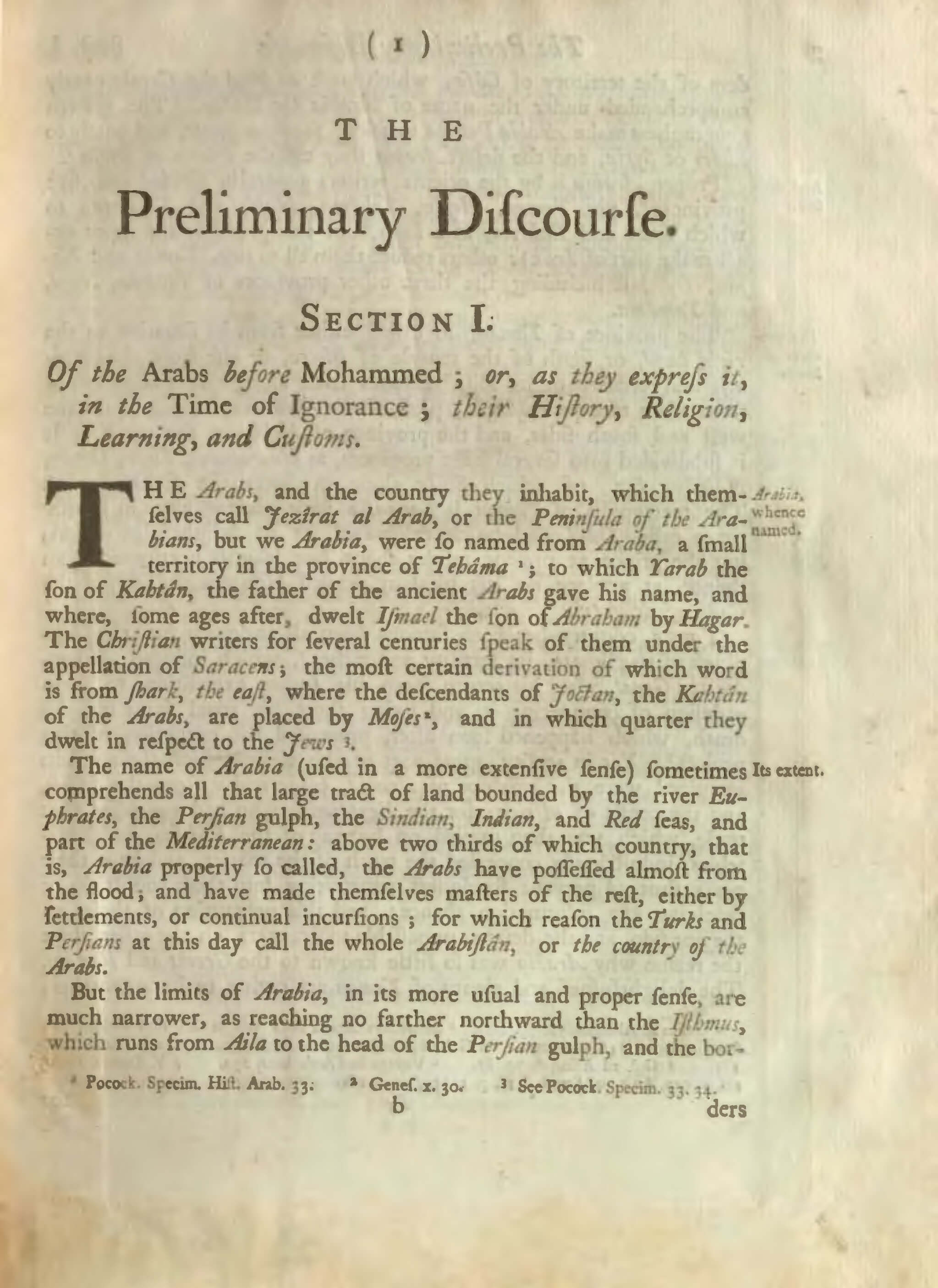George Sale, The Koran, commonly called the Alcoran of Mohammed, translated into English immediately from the original Arabic; with Explanatory Notes, taken from the most approved Commentators. To which is prefixed A Preliminary Discource (1734)
The Preliminary Discourse.
Section I.
Arabia, whence named.
The Arabs, and the country they inhabit, which themselves call Jazîrat al Arab, or the Peninsula of the Arabians, but we Arabia, were so named from Araba, a small territory in the province of Tehâma 1; to which Yarab the son of Kahtân, the father of the ancient Arabs, gave his name, and where, some ages after, dwelt Ismail the son of Abraham by Hagar. The Christian writers for several centuries speak of them under the appellation of Saracens; the most certain derivation of which word is from shark, the east, where the descendants of Joctan, the Kahtân of the Arabs, are placed by Moses 2, and in which quarter they dwelt in respect to the Jews 3.
Its extent.
The name of Arabia (used in a more extensive sense) sometimes comprehends all that large tract of land bounded by the river Euphrates, the Persian gulph, the Sindian, Indian, and Red seas, and part of the Mediterranean: above two-thirds of which country, that is, Arabia properly so called, the Arabs have possessed almost from the Flood; and have made themselves masters of the rest, either by settlements or continual incursions; for which reason the Turks and Persians at this day call the whole Arabistân, or the country of the Arabs.
But the limits of Arabia, in its more usual and proper sense, are much narrower, as reaching no farther northward than the Isthmus, which runs from Aila to the head of the Persian gulph, and the borders
1 Pocock, Specim. Hist. Arab., 33.
2 Gen. x. 30.
3 See Pocock, Specim., 33, 34.
